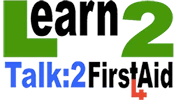Introduction
This report will follow the development of educational provision for children that have experienced challenges learning alongside same-aged peers in mainstream settings, due to social, emotional, mental, physical or behavioural difficulties. This report will focus not on the specific type of difficulty experienced by the child, but how their educational needs have been provided for.
This report will begin by defining the terms “Special Educational Needs” (SEN) and “Special Educational Needs Co-ordinator” (SENCO) before detailing the role of the SENCO, as it is currently understood and discussing challenges that SENCOs are believed to face in 2017.
Blum (2014, p12) observed a major limitation in writing his own paper to be that “the research that is currently available is invariably carried out from an outsider’s perspective looking in. By that I mean that non-teacher researchers are trying to make sense of the world of the teacher SENco in a school, rather than having the SENco speak with their own voice”. This point should be considered when reflecting on presented views bearing in mind at least four of the referenced sources for this report were authored by persons who were either currently or previously formally undertaking a mainstream school SENCO role at their times of writing.
